So Newshub is closing – the sustainability of Aotearoa news media
Source: Evad37 / Wikimedia Commons.
Aotearoa media is in a state of drastic flux. As an onlooker to the changes in news, and as a student getting into debt for a qualification in media, I wanted to better understand how large-scale changes are affecting us, a cohort whose lives revolve around a regime of constantly-rotating content – but also what these changes mean for a democratic and free media.
Newshub’s closure was formally announced by Warner Bros. Discovery in April and resulted in almost 300 job losses. TVNZ is set to reduce its staff by up to 68, including the reduction of Re: News from ten employees to six.
Former RNZ reporter and UC Journalism lecturer Conan Young told Canta that while this is a challenging time, independent media remains crucial, and training multi-media journalists is a priority.
“If you didn’t have an independent media that was able to ask the tough questions of not just politicians but the heads of business, people in powerful positions, you’re opening yourself up to a lot of potential corruption or abuses of power.
“I would say this industry is going to remain important and remain vital. It’s just not going to look like what it looks like today,” he said.
Phoebe (), a Journalism student at UC, said the changes reflect society’s needs and feelings towards media.
“As well as being crucial for a healthy democracy, media helps people to make sense of the world and connect to one another.”
Fellow UC Journalism student Rosie Leishman said that while the changes can be frightening, it’s also an exciting time.
“The whole instability of doing this degree and not knowing what came next frightened me, because you put in all this hard work.”
“Our society have almost never been so reliant on media for information and stability when the world feels so chaotic and there is so much going on,” Leishman said.
Jazlyn, a Journalism student at Ara, agreed that a balanced, fair media is vital.
“Media, specifically journalism, plays a huge role in telling people’s stories and raising important issues,” she said.
Senior reporter for the Otago Daily Times (ODT) Bruce Munro has been in the biz for about 35 years and works in training new reporters – one of them being me.
Munro’s statements are opinion, not necessarily that of the ODT.
Munro said the state of Aotearoa news media provokes uncertainty, reflecting distrust in the media.
“News media has gone from the rail-end of a golden era, in which all news media did well, and television was the glamour child, to a period of crisis in which all news media are searching for the way ahead.”
Munro attributed this as being largely driven by the internet.
“It is not helped by the widespread confusion about the difference between social media and news media.
“There will always be a vital need for quality journalism. Our country, our liberal democracy, literally depends on it.”
In a moment of panic about the impending doom of news, I came across an article by freelancer Eda Tang considering ethnically diverse journalism within the downsizing of newsrooms and newsroom closures, and I knew I needed to speak with her when constructing this article.
“A newsroom is a place that should reflect the broader public and that should include a place for difference,” she said.
“If everyone in a mainstream newsroom came from a similar upbringing and shared the same views, then the narratives coming out of that newsroom wouldn’t reflect the lived realities of people.”
She said that every outlet “should have a section in its charter that outlines its obligations to diversity and Te Tiriti o Waitangi. My view is that these aren’t met so long as Māori, Pasifika and tauiwi POC continue to have to be educators in their space.”
Evidently, to work effectively in news media in Aotearoa, I must be determined, ethical, conscious, and passionate about producing content which is entirely representative. While that industry is changing and always will be, news and our collective interactions with content will always be vitally important.

